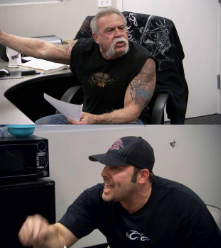
You finally understood everything when you saw how they treated the waiter who spilled the wine.
It wasn’t a fancy restaurant, just the kind of comfortable neighborhood place you’d been going to for years. The lighting was soft, the booth was familiar, and across from you sat the person you’d been dating for six months. Let’s call him David. David, who had a good job, who remembered your birthday, who said all the right things about your potential future together. You were, as they say, “seeing how things go.”
The evening was pleasant, unfolding with the easy rhythm of a well-rehearsed play. You were talking about vacation plans, a tentative dance around the idea of a shared future. Then it happened. A young waiter, perhaps new, perhaps just having a bad night, was refilling your water glass. His hand, juggling a heavy tray of dirty dishes, trembled slightly. The carafe of red wine, perched precariously near the table’s edge, tipped. A dark, crimson wave arced through the air and crashed directly into David’s lap.
Time froze.
The waiter’s face went as pale as the tablecloth. “Sir… I am so… so sorry. I’ll get napkins. I’m so sorry.”
You watched David. This was the moment. This was the unscripted, unrehearsed test that no amount of charming dinner conversation could prepare for.
And he failed.
It wasn’t a dramatic, table-flipping failure. It was something colder, more insidious. His face, which a moment before had been open and smiling, did not flush with surprise or even anger. It hardened. A mask of pure, icy contempt settled over his features. He looked down at his ruined trousers, then up at the trembling young man, as if examining a bug.
“You idiot,” he said, his voice low and venomous, devoid of any heat but full of a chilling condescension. “Look what you’ve done. These are cashmere.”
He didn’t raise his voice. He didn’t need to. The words were whips. The waiter flinched as if struck.
“I’ll… I’ll pay for the cleaning, sir. Of course.”
“You certainly will,” David said, not even looking at him now, instead dabbing at the stain with a napkin you handed him, his movements sharp with disgust.
You sat there, your own apologies and reassurances to the waiter dying in your throat. You watched the entire, painful interaction—the manager being summoned, the fawning apologies, the comped dessert you no longer wanted. Through it all, David maintained an air of offended royalty, a man whose evening had been ruined by the incompetence of a lesser being.
And in that ten-minute span, the previous six months of dating crystallized into a perfect, terrible clarity.
You finally understood why his stories about his coworkers always had a subtle, mocking edge. You understood the “jokes” he made about your sister’s career choice, jokes you’d nervously laughed along with. You understood the impatient honking at the slow driver, the rolled eyes at the elderly woman fumbling with her change at the grocery store, the way he spoke to customer service representatives on the phone with a sighing, long-suffering tone.
You had seen the polished, public-facing monument, but you had never seen its foundation until that red wine revealed it. The foundation was not built on kindness, empathy, or grace. It was built on a bedrock of profound, unshakeable entitlement. He was nice to you, and to his friends, and to his boss, because you were all deemed worthy, you were all players on his stage. But the waiter? The waiter was part of the stage crew. And when a member of the crew made a mistake, the true director of the play revealed himself.
Character, it turns out, isn’t something you display when things are easy. Anyone can be charming on a sunny day. Character is what leaks out when the wine spills. It’s your unthinking, instinctual reaction to someone else’s moment of vulnerability and shame. Do you offer a hand, or do you wield a knife?
You looked at David, really looked at him, as he sat there in his wine-stained cashmere, and you saw the ghost of your future. You saw yourself years from now, flinching every time he spoke to a telemarketer, making excuses for his behavior to your friends, slowly having your own empathy sanded away by the constant, low-grade friction of his contempt for the world.
The restaurant check came, and David paid it, still muttering about the inconvenience. You walked out into the cool night air, and he started to complain about the “clumsy kid” again.
You stopped on the sidewalk and turned to him.
“I can’t do this anymore,” you said. Your voice was quiet, but steady.
He was bewildered. “Do what? Because of the pants? Don’t be ridiculous, they’ll clean.”
“No,” you said. “Not because of the pants. Because of you.”
The confusion on his face was genuine. He truly did not understand. And that was the most confirming detail of all.
You finally understood everything when you saw how they treated the waiter who spilled the wine. Because in that moment, you weren’t just seeing how they treated a stranger. You were seeing the blueprint for how they would eventually treat you, the first time you truly stumbled, the first time you became an inconvenience, the first time you were no longer part of the audience, but part of the crew. And you knew, with a certainty that felt both terrifying and liberating, that you deserved so much more than a man whose love was conditional upon you never, ever spilling the wine.